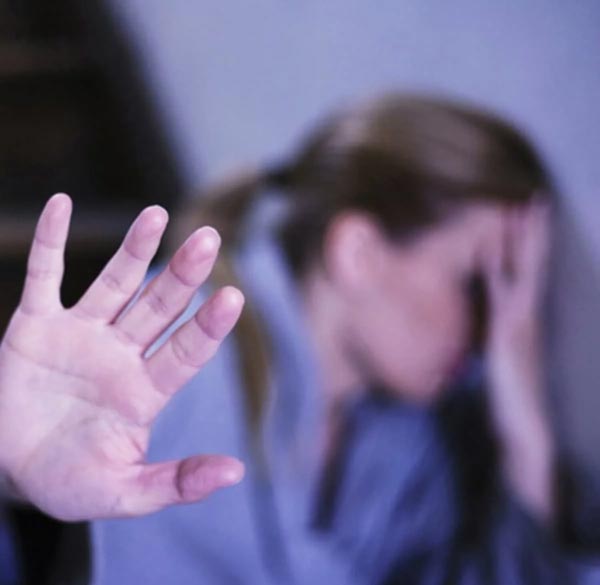As a Victim of Emotional Abuse, you need to protect your mental health and not live in a toxic relationship. It is your responsibility to take care of yourself. If you don’t do it, no one else will! Do not accept life in a toxic relationship. Do not think that being in a toxic relationship is normal.
It is no surprise that abuse damages the victim, even when the abuse is not physical.
Think cause and effect; even the smallest actions produce some sort of reaction, an outcome. Complimenting someone’s appearance can be uplifting and give someone a little spring in their step, just like criticizing someone can bring them down and cause them to doubt themselves.

So, what about emotional abuse and its three variations, verbal abuse, psychological abuse, and sexual abuse? A repeated pattern of berating, shaming, criticizing, threatening, and playing ‘mind games’ are all ‘body blows’ to the victim’s emotional health.
What are the results of these emotional assaults? The victim will certainly suffer severe psychological and emotional injury. As well, emotional abuse damages everyone in the family exposed to it, even if he or she is not the target of abuse.
There is an old saying: ‘Sticks and stones can break my bones, but names can never hurt me.’ I heard this when I was a child and naturally, I believed it. That is until I became a relationship therapist and learned the truth. Which is that without a doubt, name-calling hurts! Every type of abuse injures the victim.
Some people have the opportunity and strength to overcome their emotional injuries, while others suffer a lifetime. Regardless, in either case, victims of abuse suffer and one can never predict the long-term outcome of their injuries.
Yes, emotional abuse, verbal abuse, sexual abuse, and psychological abuse injure everyone exposed to it.
Even though emotional abuse leaves no physical marks on a person’s body, the victim’s mind and emotions are injured and these injuries impact their lives in every conceivable way.
The 12 painful injuries emotional abuse can cause
Let’s now look at the 12 common ways emotional abuse, verbal abuse, sexual abuse, and psychological abuse all injure the victim of emotional abuse. In so doing, we will answer the question, “What can emotional abuse do to a person?”
Negative feelings are strongly correlated with the experience of being abused. For example, when a person is abused, anxiety is present because it is impossible for the victim to feel that he or she has control over his or her life when at any point the abuser can override what he or she wants or feels is needed.
Fear exists because emotional abuse is painful and naturally it is feared.
Shame and guilt are part of the mental confusion that is associated with emotional abuse since the abuser insists that the victim has caused all the problems including the abuse. Even though this assertion of ‘blaming the victim’ is false, nonetheless there are times when the victim becomes confused and then feels shame and guilt thinking that he or she is responsible for the abuser’s bad behavior.
Feelings of powerlessness and defeat enter the victim’s mindset, as the presence of abuse leads them to feel not valued, used, controlled, manipulated, and incompetent, that nothing they do ever seems to be good enough. This feeling of helplessness can easily slip into severe depression.
Emotional abuse is a complex experience. The victim may alternate between passivity and aggression. Sometimes the victim expresses anger and hostility toward other people because of the pent-up anger of having to live with an abusive person and other times he or she may be docile and compliant. This cycle of diametrically opposite behavior can be rapid and seemingly illogical to everyone.
Sometimes the abused victim takes all the negative energy that surrounds him or her and either explodes, becomes aggressive towards others, or implodes and becomes deeply depressed and withdrawn.
The internal turmoil within the victim can lead to out-of-character emotional expressions. Some victims of emotional abuse are very bothered by how they have changed for the worse as a result of being around their abusive partner.
Enduring abuse can cause internal stress that leads to many types of mental and physical ailments. Stress often is accompanied by headaches, back aches, neck pain, and other inexplicable pain, and discomfort throughout the body. It is well-documented that chronic stress can lead to serious illnesses.
Emotional abuse can take over a person’s thought patterns which can make concentration more difficult than it would be otherwise. A person may become disinterested in the work before them and find it hard to stay motivated to get things done. The potential for achievement is there, but the ability and motivation are undermined by abuse.
As a person endures emotional abuse over an extended period of time, certain long-term effects will take hold and alter the victim’s character. Low self-esteem and low confidence are common psychological effects noted by researchers.
One of the hallmarks of good mental health is strong self-esteem and confidence. These character traits can only develop and exist when a person’s social environment is imbued with respect, love, and sensitivity. None of the necessary emotional ingredients needed to build healthy self-esteem and confidence are present in a home where there is abuse.
One of the tactics many emotionally abusive individuals use to break the will of his or her partner is to pinpoint areas of insecurity that already exist and play on those points. When their partner is even more demoralized, it is easier to increase their power and control. Victims exposed to this cruel and degrading behavior will suffer a loss of confidence and self-esteem.
In a close personal relationship, a bond of trust is a natural outcome. Unfortunately, abuse breaks that trust. The victim comes to believe that the abuser cannot be trusted, which is often then extrapolated into a belief that ‘no one can be trusted.’
Not being able to trust anyone can lead the victim to feel extremely alone and trapped. Because of this, it is not uncommon for a victim of emotional, verbal, sexual, or psychological abuse to fear and avoid reaching out to others for help. Because of this, it is often difficult to break the cycle of abuse and free the victim.
Trust is necessary for people to connect in meaningful ways. Abuse destroys this opportunity to use the natural trust we are all born with which is a necessary ingredient for relationship building.
This is one of the primary reasons why children who are abused often find it difficult to develop healthy relationships once they become adults. They cannot access their natural trust and use it to connect deeply with others. Even though the abuse may have happened years ago, and in some cases the adult can no longer recall the childhood abuse they suffered from, nonetheless, the abuse continues to impair them in their adult lives.
Low self-esteem, lack of self-worth, dysfunctional relationship adaptations, and lack of confidence over a long period of time can lead to mood disorders. Slowly but surely, emotional dysfunction can claw its way into the life of the victim and continue to worsen as the victim goes without treatment.
Although psychiatric illness is currently thought of as a result of a simple ‘chemical imbalance,’ this has not been proven. It is likely that people who suffer from psychiatric illness have a predisposition and sensitivity to emotional turbulence in their lives as well as actually experiencing emotional assault and chaos. The combination of the two — predisposition and circumstance — can lead to serious psychiatric disorders.
Emotional abuse is a potent form of victimization and must be taken seriously.
Psychological trauma brought on by emotional abuse can cause disturbances in sleep patterns. These disturbances can take the form of chronic insomnia, the need for excessive sleep, or intense nightmares. All of these phenomena can become long-term disorders if the emotional abuse continues and the disturbances are left untreated.
If a relationship is not bringing the happiness and satisfaction one desires, the victim may turn to outside substances to ‘feel good’. This can be anything: alcohol, legal and illegal drugs, cigarettes, sex, and other harmful habits. These ‘false stress-busters’ will only make the victim’s life worse and solving the abuse problem more difficult.
Being abused leads to feeling helpless and hopeless. This feeling may be expressed with a ‘not-caring’ attitude toward one’s life which manifests itself in risky and dangerous behavior such as out-of-control gambling, taking unnecessary risks, use of dangerous substances, criminal behavior, etc.
Taking this feeling one step further may lead to suicidal thoughts and behaviors. It’s easy to think about suicide as a way to end your own suffering when you don’t see any other solution. Victims of emotional abuse might express their suicidal thoughts by hurting themselves in small ways such as becoming addicted to substances or unhealthy behaviors, dangerous behaviors, self-cutting, unhealthy eating, etc.
Stockholm Syndrome is a condition whereby the victim of abuse feels a bond with the abuser; worshiping him or her, and a bizarre agreement with the abuser’s goals to dominate and control.
This sick and unethical dynamic can be recognized in the actions of an abusive cult leader. The cult victims express agreement with the cruel leader and willingly comply with whatever the leader wants. This same dynamic can happen within an abusive family. Stockholm Syndrome can be perplexing to those who don’t understand the damage that emotional abuse is capable of inflicting. The victim may resort to defending the actions of the abuser and become distressed when a third party tries to interfere and stop the abuse.
Sexual desire has physical and emotional components. When emotional abuse enters a relationship, the sexual nature of the relationship may become strained, even though physical attraction remains present. This is in part due to the broken trust between the victim and abuser, as sexual acts involve trust between both partners.
As well, emotional intimacy cannot develop when there is anger and oppression in a committed relationship. Emotional safety as a prerequisite to a healthy sex life is especially true for women. Women need to feel emotionally connected with their partner before they can comfortably enter into a sexually intimate connection.
Men who abuse often end up in a sexless marriage or suffer from mechanical sex that often only comes through coercion and more abuse. What these abusive men need to understand is that their female partner requires emotional closeness prior to romance, love-making, and passionate sex.
Emotional abuse and its variants must be stopped!
Emotional abuse, verbal abuse, psychological abuse, and sexual abuse describe a dynamic whereby one human being degrades and diminishes the value of another and thereby attempts to dominate him or her. The victim of abuse is not only injured when emotionally attacked but is also left with pervasive and long-lasting injuries that can impair the victim’s life in many ways in the future as described above.
Every form of abuse is wrong for many reasons. The first step for an emotional abuse victim it is to educate himself or herself so he or she can evaluate whether abuse is present and if so, what are his or her options to stop it.
No one should accept being a victim of emotional abuse. It should not be considered as a ‘price to pay’ to keep the family together. Freedom and happiness is a birthright, a human right every living person is entitled to.
If you are in an abusive situation, educate yourself, get help from a relationship therapist if needed, and make sure that in the near future, you are living with healthy people either because your abuser has stopped his or her bad behavior, or you have moved on.




